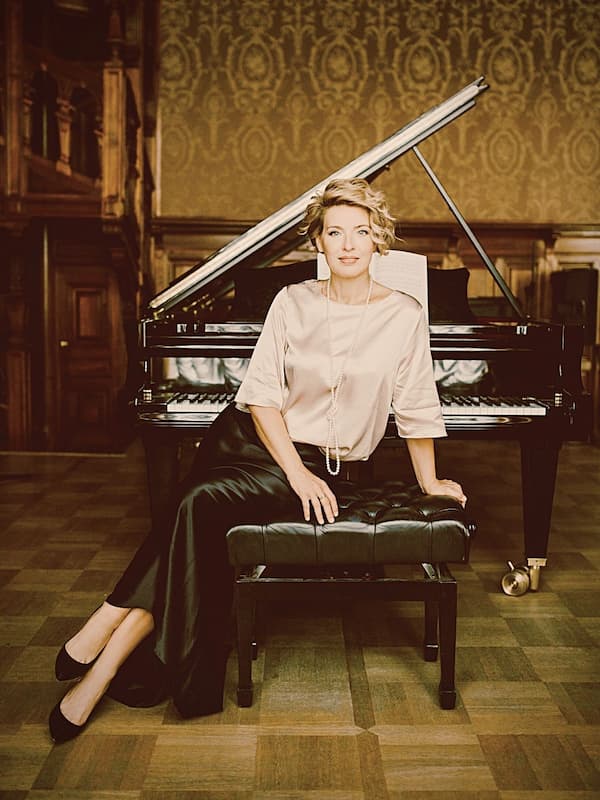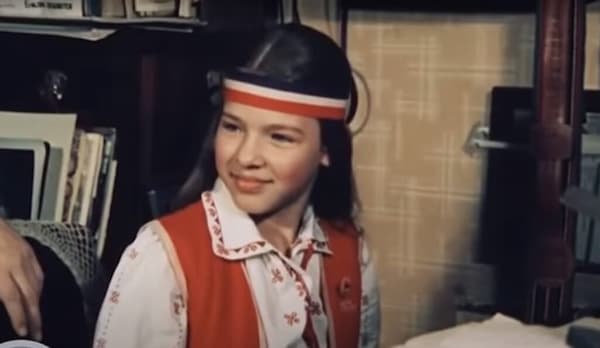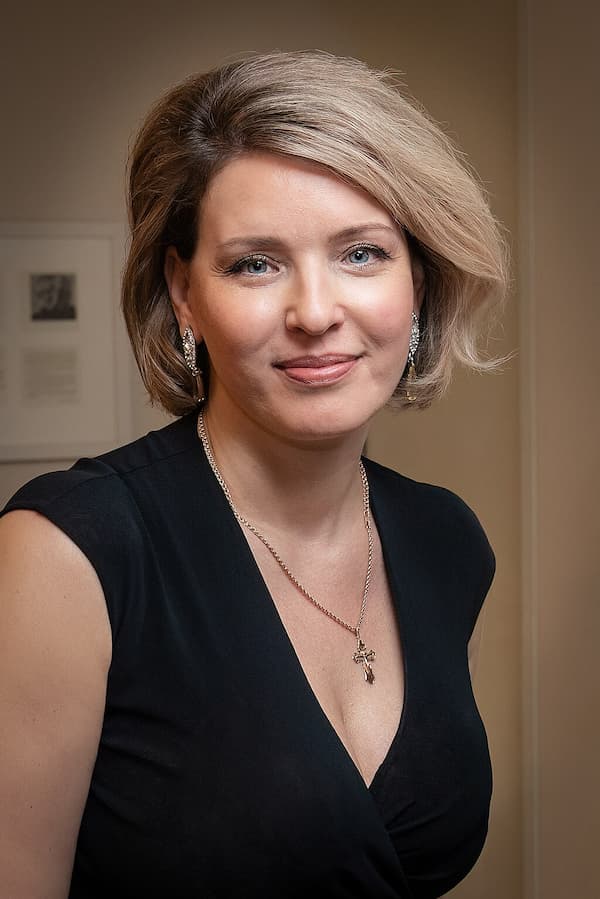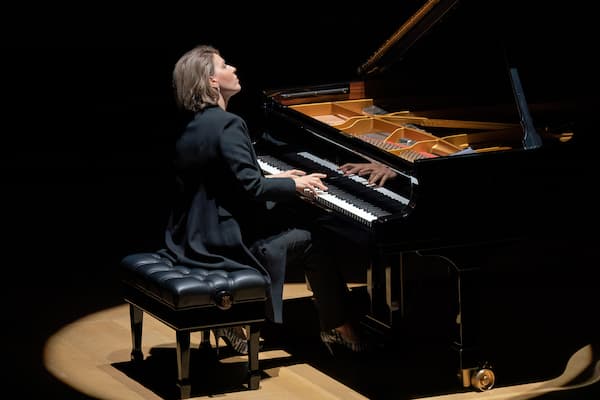Polina Osetinskaya gave her first solo recital in Vilnius at the age of 6, and by the age of 9, she was playing Beethoven’s Fifth Piano Concerto with orchestra. Since then, she has performed at the most prestigious venues across the world. A critic wrote, “her tone is deep and rich, her articulation faultless, and her feeling for the pulse of the music she is playing is as natural as breathing—that’s something that cannot be taught.” Since the beginning of the Russian invasion of Ukraine, Polina has repeatedly expressed her pacifist position and has promptly been cancelled by the Russian government.
Polina Osetinskaya Plays Bach’s “Sheep may safely graze” (trans. Egon Petri)
Soviet Ideology

Polina Osetinskaya
Osetinskaya was born in Moscow on 11 December 1975, growing up in an environment shaped by Soviet ideologies. As she relates in her autobiography Farewell Sadness, Osetinskaya recalls a period of “emotional restraint, societal pressure, and personal struggle.” Prodigiously talented, Osetinskaya had tremendous expectations placed on her by her family, both by her father and her estranged mother. As she related, “I only felt an ongoing search for understanding, care, and affection.”
The love she received from her family was often more duty-bound than emotional, and through all the abuse, she was constantly longing for a deeper sense of connection. Osetinskaya never really felt fully supported, and the additional hardship of Soviet society, with its emphasis on conformity and the suppression of individuality, deeply affected her emotional development. In her autobiography, Osetinskaya paints a vivid and heart-wrenching picture of the emotional struggles she faced as a child.
Valentin Silvestrov: Kitsch-Musik (Polina Osetinskaya, piano)
Role of Music

Polina Osetinskaya as a young girl
Osetinskaya started piano lessons at age 5 with her father, screenwriter Oleg Osetinsky. However, at age 13, she ran away from her father, telling the press that she had been beaten, bullied and humiliated as he tried to make her a child prodigy. He actually starved his child in hopes of raising a “super daughter,” and he added physical weights to all her outdoor activities. And the beatings left blackened bruises all over her body. Outwardly, everything was perfect, and in each interview, the girl talked about the incredible unity with her father, but by the time she ran away, she had two dozen chronic diseases, including problems with the stomach, blood vessels and heart, and she had many thoughts of suicide.
As Osetinskaya writes, “The experience of listening to and playing music gave me a glimpse of a more idealised world, one filled with passion and depth. Music, in this sense, was a means of aspiring to something greater than my immediate surroundings. It offered a kind of emotional richness and transcendence that contrasted with the drudgery of everyday life in the Soviet Union and with the violence of my father.”
Polina Osetinskaya Performs Chopin’s 4 Mazurkas, Op. 24
Exploring Emotions

Polina Osetinskaya, 2023
Osetinskaya explained that the piano became a space where she could explore her emotions, even if the pieces themselves didn’t directly reflect her feelings. “Playing the piano offered moments of introspection and self-expression, even in the midst of a structured and demanding childhood.” Osetinskaya freely admits that she had mixed feelings towards the piano, as initial resentment eventually gave way to appreciation.
Osetinskaya entered the Central Music School at the Moscow Conservatory and gave her first solo concert in Moscow in 1983. Her full-fledged debut took place in 1987 when she played Mozart’s Concerto No. 23 with the Chamber Orchestra conducted by Georgy Vetvitsky. She continued her studies in St. Petersburg with Marina Wolf, and graduated from the Conservatory in 1998.
Leonid Arkad’yevich Desyatnikov: Echoes from the Theatre (Polina Osetinskaya, piano)
Political Voice

Polina Osetinskaya
Osetinskaya openly opposed the Russian invasion of Ukraine by signing a letter against it in 2022. As she explained in an interview with VAN magazine, “I’ve always expressed my thoughts and feelings about what’s going on truthfully and loudly. I’ve always stood up for political prisoners in our country, and I’ve always fought for the truth… But mostly, the shame I experience is that we didn’t change anything, and now we can’t.”
She didn’t have to wait long for the unofficial Russian response as all her concerts in Russia, in all state and government concert halls, were cancelled. And denouncements, a political tool of the current authoritarian Russian regime, soon started to spread. As she explained, “I never had concerts in the most important halls here in Russia because of my political positions. I’ve been told by many conductors and many concert hall promoters that I talk too much.”
Osetinskaya, however, will not be silenced, and she will continue to perform music by Russian composers. “Music is not to blame for anything at all, specifically music written 100 years ago. If a Ukrainian doesn’t want to listen to Tchaikovsky and Rachmaninoff, I understand, but if it brings comfort to another person at the moment, I can’t take it away.”
For more of the best in classical music, sign up for our E-Newsletter

I would like to buy the book Farewell Sadness (by Polina Osetinskaya) in English. Is that possible? If so, where can I order it? I live in the Netherlands. I will probably have to order it abroad. But can you give me an address?